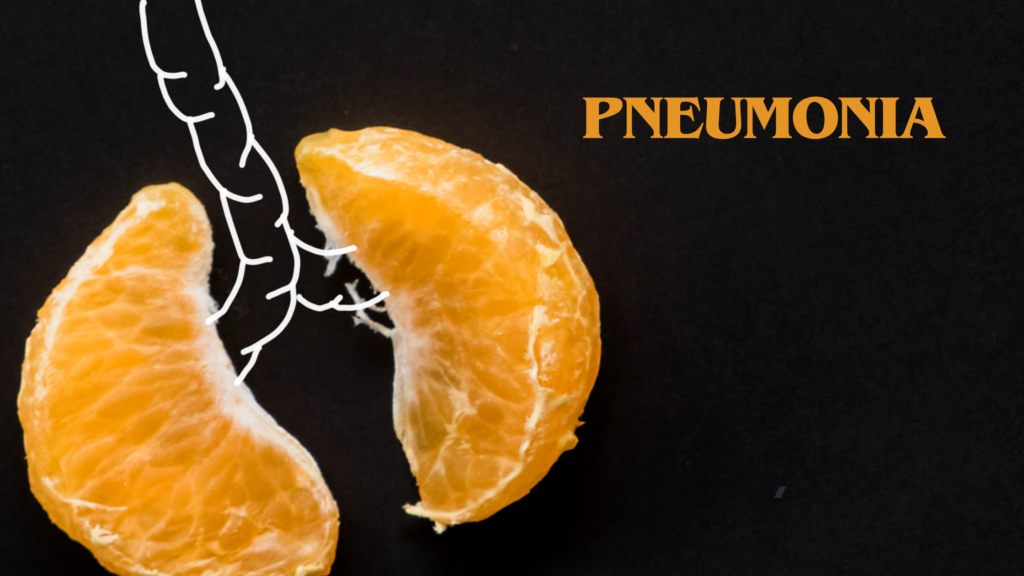🦠 Pneumonia
Pneumonia is an infection of the lungs that causes the air sacs (alveoli) to become inflamed and filled with fluid or pus, making it difficult to breathe and reducing oxygen exchange.
It can range from mild to life-threatening, especially in the very young, elderly, and people with weakened immune systems or chronic health conditions.
🧫 Causes of Pneumonia
| Type | Common Causes |
|---|---|
| Bacterial pneumonia | Streptococcus pneumoniae (most common), Haemophilus influenzae, Staphylococcus aureus |
| Viral pneumonia | Influenza virus, RSV, COVID-19, adenovirus |
| Fungal pneumonia | Histoplasma, Cryptococcus, Pneumocystis (in immunocompromised) |
| Aspiration pneumonia | Inhalation of food, stomach acid, or saliva into the lungs |
📋 Common Symptoms
- Cough (with green/yellow sputum or dry)
- Fever and chills
- Shortness of breath
- Chest pain (worse when breathing deeply or coughing)
- Fatigue and weakness
- Loss of appetite
- Confusion (especially in older adults)
- Rapid breathing or increased heart rate
🩺 Diagnosis
- Medical history and physical exam (crackles or rales heard with a stethoscope)
- Chest X-ray (confirms areas of lung infection)
- Blood tests (check white blood cell count, oxygen levels)
- Sputum culture (identifies causative organism)
- Pulse oximetry or arterial blood gases (ABG)
- CT scan or bronchoscopy (in unclear or complicated cases)
💊 Treatment
🔹 Bacterial pneumonia
- Antibiotics (choice depends on age, health, severity, and setting)
- Outpatient: Amoxicillin, macrolides (e.g., azithromycin)
- Inpatient: Ceftriaxone, azithromycin, or fluoroquinolones
🔹 Viral pneumonia
- Supportive care (rest, fluids, oxygen if needed)
- Antivirals (e.g., oseltamivir for flu, remdesivir for COVID-19)
🔹 Fungal pneumonia
- Antifungal medications (e.g., fluconazole, amphotericin B)
🔹 Supportive care
- Oxygen therapy
- Fever reducers (acetaminophen, ibuprofen)
- Fluids and rest
- Hospitalization for severe cases (e.g., low oxygen, sepsis, complications)
🧒👵 Special Populations at Risk
- Infants and young children
- Elderly adults
- People with chronic illnesses (COPD, heart disease, diabetes)
- Immunocompromised (HIV, chemotherapy, transplant recipients)
- Smokers
💉 Prevention
- Vaccination
- Pneumococcal vaccine (PCV13, PPSV23)
- Influenza vaccine (yearly)
- COVID-19 vaccine
- Handwashing and hygiene
- Smoking cessation
- Proper treatment of upper respiratory infections
🔄 Prognosis
- Most people recover fully with treatment.
- Mild pneumonia may resolve in 1–2 weeks.
- Severe pneumonia may take longer and can be life-threatening, especially in vulnerable groups.
